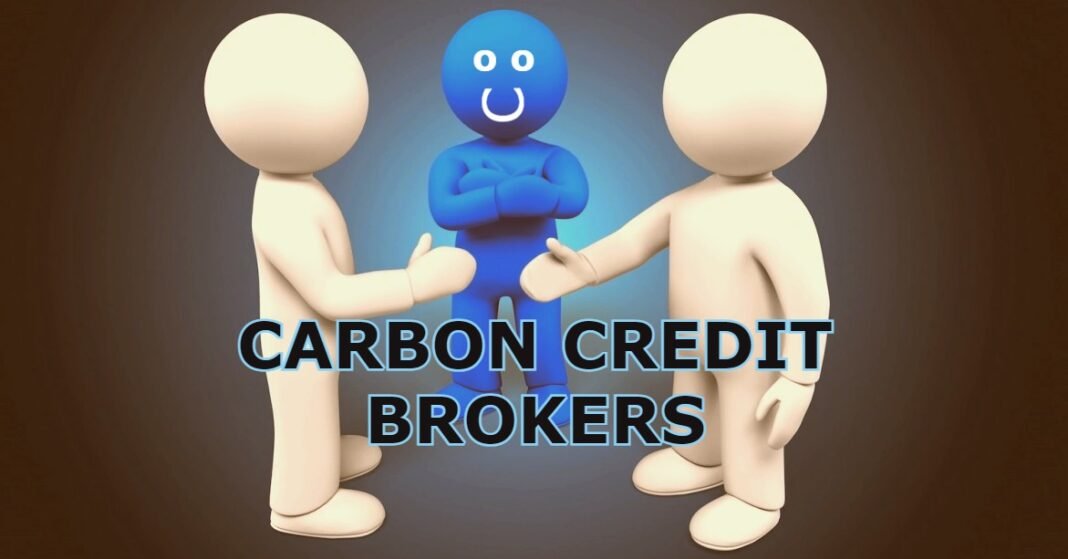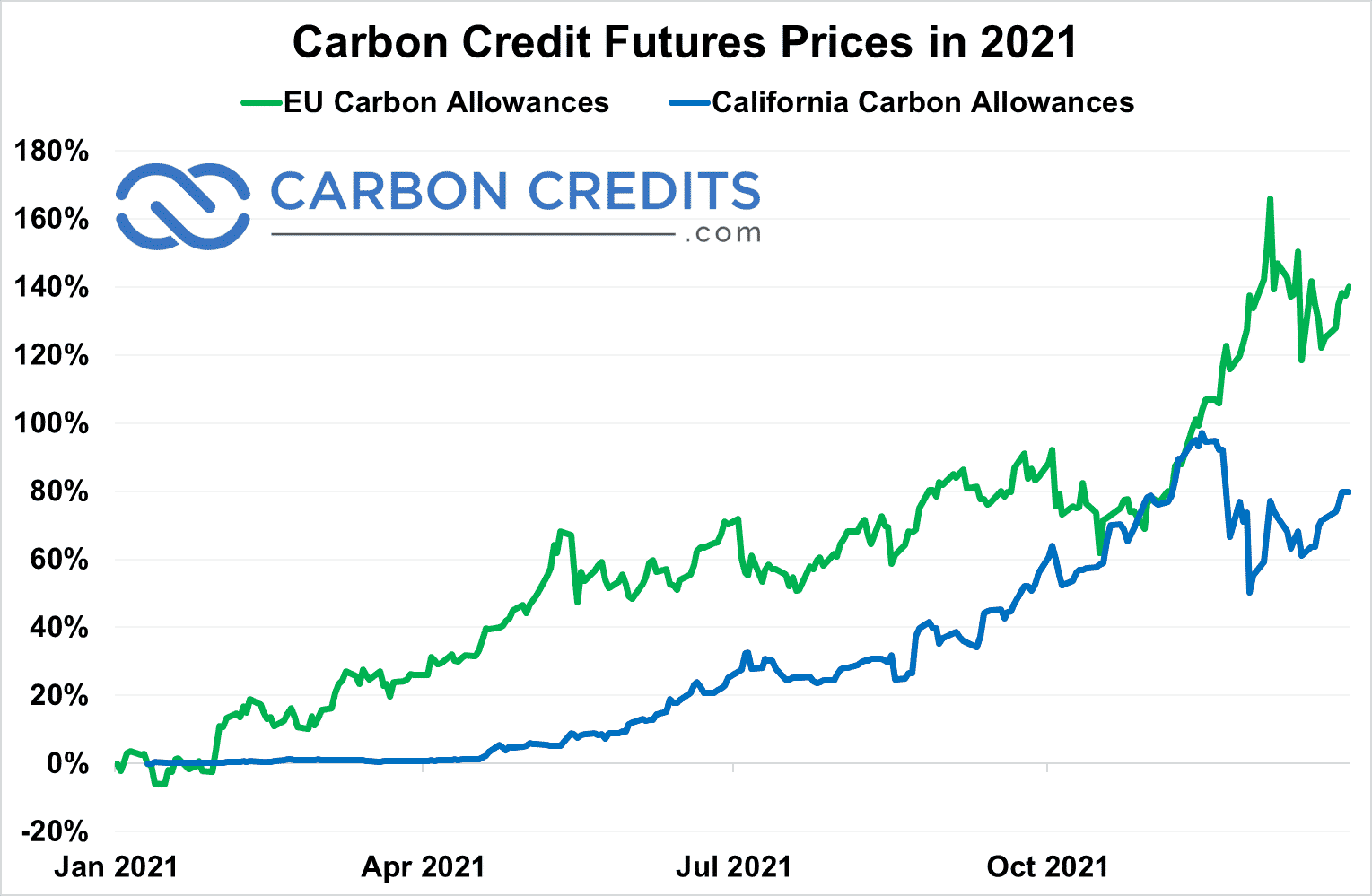Are you a bit wary of investing in carbon credits and want to enlist help from a broker? Or perhaps you only want to learn what brokers do and what is their role in generating carbon credits.
Either way, this article will help you know everything you need about carbon brokers. And while most of them can be trusted, it never hurts to do your research first.
What is a Carbon Credit Broker?
A carbon credit broker is tasked with providing investment access to commodity markets. Apart from carbon credits, this can also include other commodity products such as renewable energy credits and sustainable funds.
So in a sense, carbon credit brokers function in a similar way to traditional brokerage platforms. They simply facilitate the transactions between the investors and their desired market.
But carbon credits work in a highly fragmented space without centralized exchanges as the case with other long-standing stocks.
On the other hand, even the best carbon credit brokers only offer access to the over-the-counter markets.
In other words, they work as a middleman between carbon market participants looking to participate in the space – the buyers and sellers.
Buying and selling carbon credits via OTC can be risky, especially for those who don’t have enough experience or expertise in the field. For instance, with the growing demand for carbon credits but a lack of centralized exchange, investors will often have to pay a huge premium to buy carbon credits through OTC markets.
Also, when it comes to prices it depends on market conditions at the time of carbon trading and whether the ball is in the buyers’ or the sellers’ court.
This is where the knowledge and skills of carbon credit brokers would come in to help you. Credible brokers can lead you to the right projects that generate high-quality carbon credits. This is critical to avoid falling victim to carbon credit scammers. You can lose hundreds, if not thousands, of dollars if you’re not guided.
Not to mention that brokers are also in the know who are the top carbon trading companies to work with that can maximize your investment.
Whether you’re looking to offset your carbon footprint or simply want to support projects that fight climate change, the broker will guide you to find the best choice.
How Do Carbon Trading Companies Work?
Carbon trading has been successful in reducing greenhouse gas emissions, which is key to tackling climate change. Still, it is also important to note that there are some uncertainties involved in trading carbon credits.
But the top carbon credit trading companies know their way around that. Popular names include AirCarbon Exchange, Carbon Trade Exchange, Toucan Protocol, and Xpansiv.
They are businesses that carry out the buying and selling of carbon credits. They offer credits that can be bought, sold, or traded as part of a carbon offsetting project.
The buyers can use the credits to offset their footprint.
The basic idea behind carbon trading is to create a market-based mechanism to encourage companies and individuals to cut down their emissions by making it financially beneficial to do so.
The first step involved in carbon trading is to do an emissions inventory by calculating how much GHG the entity emits. Once the amount is known, the polluter can now buy carbon credits from a carbon trading company. Each credit represents a reduction of one metric ton of CO2 or its equivalent.
But before the credits are issued, carbon trading companies usually do verification first. It is to verify and ensure that the carbon credits traded are credible and represent real carbon reductions.
After verification, carbon trading companies can then trade the credits on their platform where buyers and sellers trade. The price for the credits vary, depending on the market type and the underlying regulations.
The proceeds from selling carbon credits are used for various purposes. Most of the money goes to investing or supporting carbon reduction projects such as reforestation, upgrading energy efficient projects, or funding climate mitigation initiatives.
With that, carbon trading companies play a crucial role in transitioning to a low-carbon economy through market-based incentives to reduce emissions.
So, where do brokers of carbon credits come in?
They connect the buyers and sellers of carbon credits…but for a fee.
How much is the Brokers’ Fee?
That fee they charge is reasonable though. They have gone through a process before they were approved as brokers.
They have waited some time before they have started selling carbon credits. And even before that, they have to make some decisions as to what type of projects they will pick to offer the buyers.
They will do all the things for you so that you just have to decide which project to support. After all, that’s how they earn – getting the share from a certain percentage of their share in the sale proceeds.
Not all carbon credit brokers have the same rate or percentage share. Some may charge for as low as 5% while others do so in the range of 10-20%. The difference varies depending on the broker’s expertise, the specific project, and other things.
The Brokers’ Role in Creating Carbon Credits
Investments in the carbon credit market had soared as carbon prices increased faster, leading to more carbon reductions and removals. It is the case with the EU and California carbon credits or allowances prices in 2021. Brokers play a key role in this space.
Brokers aid in getting carbon offset projects off the ground through funding and marketing services. These projects can be costly and often take a long time to process.
A broker’s job is to address those issues by helping project developers (often the sellers) and buyers alike. As some developers would say that brokers are critical, especially at the times when demand and prices are low.
In other words, a broker’s role is to make the project attractive to a buyer or a reseller.
Some carbon credit brokers are even taking huge risks to develop those projects. For example, they shoulder the upfront prices for the carbon credits.
A group of brokers said that bulk of the proceeds from selling carbon credits goes back to developing more projects. Other revenue chunks are for paying other costs such as administration, marketing, and project monitoring, reporting and verification (MRV).
How Does Buying and Selling Carbon Credits Work?
The concept of buying and selling carbon credits is anchored at the fact that companies are required to emit only a certain amount of greenhouse gases.
They have to follow that limit to avoid fines, or they can turn to carbon credits for their unavoidable emissions. This trading happens in the compliance or regulated carbon markets.
Take for instance the case of Tesla. The carmaker specializes in producing electric vehicles and clean energy sources. It only means that Tesla has surplus carbon credits on its books, which gives it big revenue through selling those excess credits to other businesses.
To be exact, the EV maker made a record $1.78 billion sales from carbon credits in 2022 alone.
But for smaller companies and individuals, things can get tricky because there’s currently no centralized exchange process that can facilitate buyers and sellers.
That means for the average retail investor, OTC carbon trading may not be the best option. Instead, they might consider other ways but the most common means is through carbon credit brokers.
If you are a producer of carbon credits, you can sell them yourself. But prepare to exert a lot of effort and spend more time if you want to. Or save them by enlisting a broker.
The same goes if you are a buyer. You need to do a lot of research before you can trust the carbon credit trading company or platform.
Finding the Best Carbon Credit Trading Platform
As discussed earlier, carbon trading companies are essential to reduce planet warming emissions. They facilitate the buying and selling of carbon credits.
There are many different carbon credit trading platforms available to choose from. Though they have unique features, they share one thing in common: they help drive investments into projects that benefit the environment.
Finding the best trading platform to take part in is no easy feat. The first thing to do is to figure out what kind of projects to invest in or support.
So, for instance, if you prefer to invest in renewable energy projects, it would be better if you pick a company that trades renewable energy credits. It is one among the over one hundred types of carbon credits in the market.
If you are looking for a way to enter the world of carbon credits without the need to wade through all the web of details yourself, one place to start is the online brokerage. These trading platforms provide access to various types of carbon credit investment vehicles such as ETFs or exchange-traded funds.
Through these platforms, you can also choose between different carbon credit futures contracts, depending on what you prefer and the level of investment risk you can take.
Should you want to learn more about carbon credits, here’s our complete guide about it.
Investing in Carbon Credits through a Broker
Investing in carbon credits is one of the best ways to cut your carbon footprint while contributing to the fight against climate change.
It’s not surprising, therefore, that many countries are now making policies around carbon credits. The UK, EU, US, as well as China are the major country players. They strongly support the growth of carbon markets.
So by investing in the right carbon credits, you’ll be satisfied that your money goes towards projects that help reduce carbon pollution.
But it is important to understand the market well if you want to invest in carbon credits. For one, it helps to know the different carbon credit trading options currently available. Picking the right one to suit your situation will give you the return you want.
It is also crucial to know how the prices of different types of carbon credits change over time. These changes can affect how much return you’ll make when investing in carbon credits.
Trading carbon credits through a broker is considered to be a more transparent transaction than doing it via auctions. That is because brokers, the credible ones, are doing their job to find the best trading company that offers high-quality carbon credits.
They do a thorough investigation, research, and evaluation of the carbon projects that generate the credits, which in turn, they offer to the buyers. They also have the knowledge to help you decide which credits are best to invest in.
You just have to talk to them about your possible options and make your choice. That’s what you’re paying them for – to do all the work you should have done without them.
In the end, knowing how brokers work within the carbon credit market and what their role is can help you better invest your money in the right climate solutions.
Should you prefer to know exactly how to invest in carbon credits, go over our comprehensive guide here.


